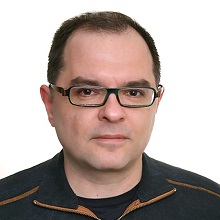- OVERVIEW
- SPEAKERS
- RELATED
Data-driven decision-making is revolutionizing public administration, enabling governments to address complex challenges and implement impactful reforms. This seminar delved into the potential of government analytics, focusing on its application in healthcare.
We discussed insights from the World Bank’s recent report, Government Analytics in Europe, which highlighted how analytics using government microdata is enhancing governance across the EU. The session also spotlighted the findings of the research paper, Motivating Improved Healthcare Using Holistic Patient Contracts, which examines how explicit agreements between patients and healthcare providers can improve outcomes. Through a large-scale randomized evaluation leveraging comprehensive patient records, the study demonstrates how shifting healthcare delivery from episodic care to holistic patient welfare leads to improved screening, diagnosis, and treatment—and even reduces mortality among mild-risk patients by a third.
This discussion offers practical recommendations for integrating government analytics into policymaking across sectors, with actionable strategies to enhance transparency, efficiency, and impact.
DATE: December 11, 2024
TIME: 10:00-11:00 AM ET
CHAIR: Michael Lokshin, Lead Economist in the Office of Chief Economist for Europe and Central Asia, World Bank
CONTACT: Office of the Chief Economist Office in Europe and Central Asia
Date: December 11, 2024
Time: 10:00 AM - 11:00 AM ET
Location: Online



